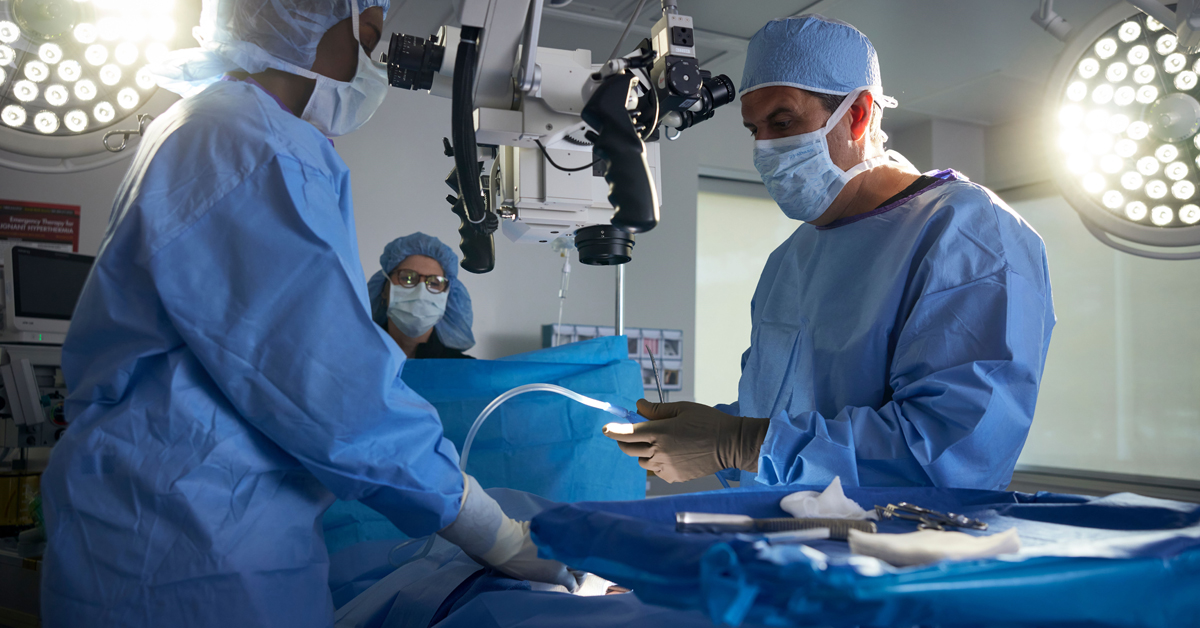Minimally Invasive Spine Surgery: What You Should Know

Minimally Invasive Spine Surgery (MISS) is a highly advanced surgical technique specifically designed to help stabilize the bones and joints of the spine and alleviate pressure on the spinal nerves.
Compared to traditional open surgery, which often requires a long incision down the back and significant removal or displacement of muscles and soft tissue, MISS is far less invasive and leads to significantly less trauma in the affected area.
Because of the smaller incisions and numerous benefits, MISS has become an increasingly popular option for patients seeking a more effective and less traumatic way to address spinal problems. The procedure is generally faster and safer and requires less recovery time due to reduced damage to muscles and soft tissues.
Benefits of MISS also include:
- Better cosmetic results
- Less blood loss
- Lowered risk of infection
- Diminished post-operative pain
- Quicker recovery
- Reduced reliance on pain medications post-surgery
How Is MISS Performed?
During MISS, your surgeon will cut a small opening in your back and carefully insert a tubular retractor device. This tool effectively and gently moves aside the surrounding muscles and tissues, allowing your surgeon to access the affected area with precision.
Advanced operating microscopes are used alongside real-time imaging technology, such as X-rays and microscopic videoscopes, to provide your surgeon with a clear and detailed view of the targeted region.
What Does MISS Treat?
MISS was developed to treat many spinal conditions so your doctor may recommend this technique as an alternative to open spine surgery. Some common spinal conditions MISS is often used to treat are:
- Degenerative disc disease
- Herniated discs
- Spinal stenosis
- Scoliosis or other spinal deformities
- Spinal instability, including spondylolisthesis
- Fractures
- Infections
- Tumors
Who Is a Good Candidate For Minimally Invasive Spine Surgery?
For patients who have exhausted non-surgical treatments without success, your doctor may suggest exploring minimally invasive spine surgery as a viable option. In cases where traditional back surgery is not suitable, MISS can offer a safer and more effective alternative.
However, it is important to note that MISS will only be performed if it is deemed appropriate and beneficial for your specific condition. If MISS is less effective than traditional surgery, your surgeon will discuss the potential benefits and risks.
Risks of Minimally Invasive Spinal Surgery
While MISS generally has fewer complications than open surgery, it’s not without risks. Potential complications include:
- Infection
- Bleeding
- Nerve damage
- Complications related to anesthesia
There’s also a risk that the surgery might not relieve the initial symptoms or could even exacerbate them.
As with any surgical procedure, discussing the risks with your surgeon, weighing them against the potential benefits, and understanding the precautions taken to mitigate them is important.
Recovering From Minimally Invasive Spine Surgery
Compared to traditional open spine surgery, the recovery process from MISS is typically faster. This is due to the less invasive nature of the procedure, which requires a smaller incision and results in less tissue damage. However, the exact duration of recovery can vary depending on several factors, including:
- The specific type of surgery
- Your overall health
- The extent to which you follow post-operative care instructions
For best results, patients must adhere to the guidelines provided by their healthcare team closely.
Talk To Your Doctor About MISS
Back pain can be complex, and finding the right solution can be challenging. We’re committed to helping you understand your treatment options. Give our office a call today!

